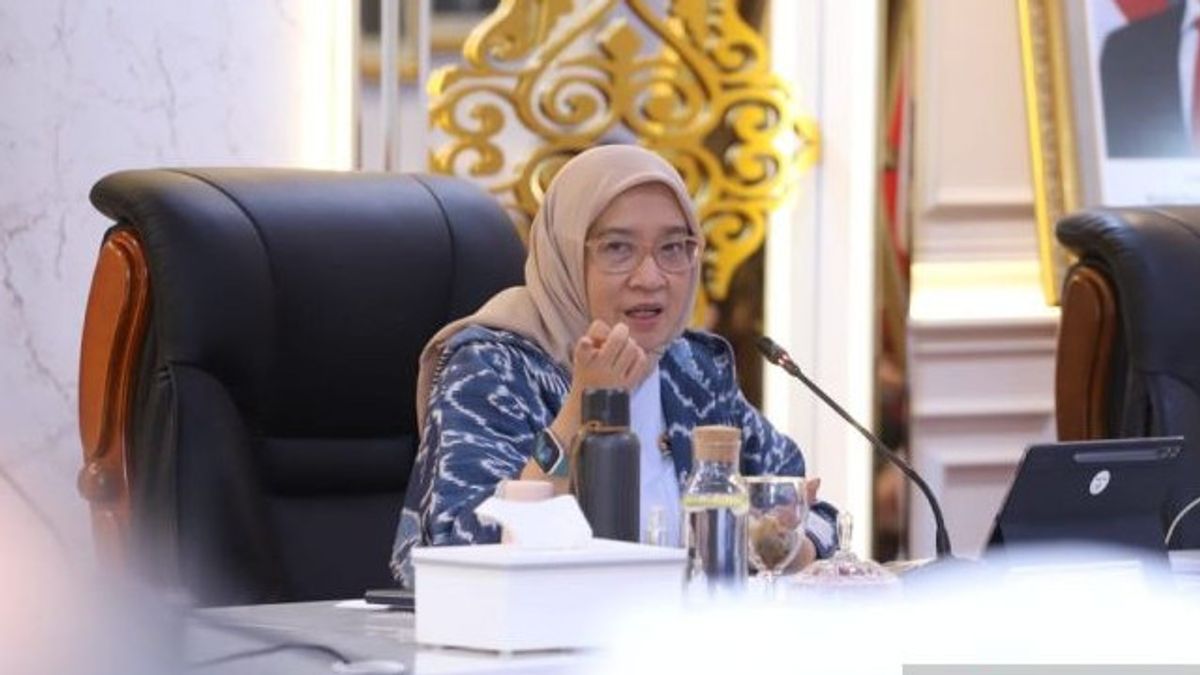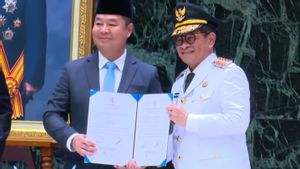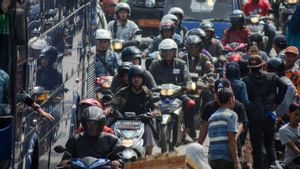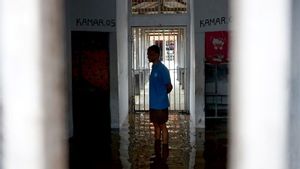JAKARTA - The government is still discussing the implementation of a flexible working arrangement (FWA) during the national holiday and Eid al-Fitr 1446 Hijri/2025 joint leave.
Minister of State Apparatus Empowerment and Bureaucratic Reform (PANRB) Rini Widyantini said the policy would follow the dynamics and situation during the homecoming and backflow of Lebaran 2025.
"Later we will issue a Circular regarding official work patterns flexibly/FWA and work systems during national holidays and leave with Eid al-Fitr 1446 H/2025. That is situational, based on input and discussion with relevant agencies and stakeholders, namely the Coordinating Ministry for Infrastructure and Regional Development, Coordinating Ministry for Human Development and Culture, Ministry of Transportation, Ministry of Public Works, Police, TNI, Jasa Marga, and other stakeholders," said Rini in a statement in Jakarta, Friday, February 21, confiscated by Antara.
He emphasized that the PANRB Ministry is ready to collaborate with relevant stakeholders in reducing the potential for traffic density.
As for the length of Ramadan, the regulation of ASN days and working hours and government agencies is also regulated in Article 4 paragraph 2 of Presidential Regulation Number 21 of 2023, namely working hours of government agencies and working hours of ASN employees in the month of Ramadan as much as 32.5 hours in one week excluding rest hours.
In addition, Rini explained that the implementation of FWA was based on several factors such as work efficiency, improving employee welfare, as well as technological developments and demands of the times. In general, there are 2 types of FWA implementation that can be implemented, namely work flexibility on a location and time basis.
"FWA has been regulated in Presidential Regulation (Perpres) Number 21 of 2023 concerning Work Day and Work Hours of Government Agencies and ASN Employees, especially in Article 8. This regulation allows the implementation of official duties flexibly (FWA), both in the form of location flexibility and time flexibility," he said.
He said the implementation of the FWA could be carried out but taking into account several provisions. However, FWA certainly does not reduce the quality of service provided by government agencies to the public.
SEE ALSO:
SEE ALSO:
Rini said that the pattern of service in a flexible manner (FWA) is a terminology that is more complete than working from anywhere or working from anywhere (WFA). In Presidential Decree No. 21 of 2023 it does not recognize WFA, but the arrangement can be linked to flexible areas that are meaningful in employees' residences or other locations determined/determined by PPK.
The application of FWA is enforced by all employees, but there are several criteria for employees that need to be considered such as not undergoing or in the process of disciplinary punishment and not new employees. Meanwhile, for work criteria that can be carried out with the FWA pattern, it can be done outside the office other than the office, then it can be done by utilizing information and communication technology.
Furthermore, it has minimal face-to-face interaction, and is independent or does not require continuous supervision.
"The most important thing about the implementation of FWA is that the quality of service that we provide to the community is not reduced. So the support for technological progress and then also the mindset which is the strength for this FWA can run optimally," said Rini.
In the implementation of the FWA, employees must fulfill their mandatory working days and hours in 1 week as stipulated in Presidential Regulation Number 21 of 2023, namely 5 working days in 1 week with an accumulation of 37.5 hours of working hours excluding rest hours. In addition, each employee is required to report the results of their daily performance when carrying out the FWA, as well as in the implementation of the FWA must ensure the achievement of performance targets, the effectiveness of public services and government administration.
The English, Chinese, Japanese, Arabic, and French versions are automatically generated by the AI. So there may still be inaccuracies in translating, please always see Indonesian as our main language. (system supported by DigitalSiber.id)















